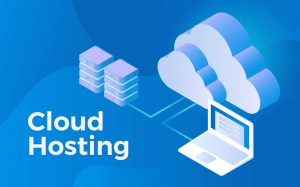How eLearning Develops Leadership Skills Among Corporate Employees

Leaders are not born, but made, at least when we consider leadership in management positions in a corporate environment. Proper efforts into training and development are required to ensure that the required leadership skills are developed in an individual.
Successful leaders not only posses a vision, excellent communication, and people skills, but they also have a vast knowledge about their industries. A few of the leading organizations like Amazon, Apple, and Google have highly-skilled and influential leaders in their possession. In today’s world, most of the leading organizations are using a broad range of educational tools for preparing highly-skilled employees for leadership roles. Recent developments in the eLearning sphere have made it convenient to provide training programs efficiently and cost-effectively. While eLearning alone cannot be considered as an ultimate solution for leadership development, you can use it to increase its effectiveness in various ways. Let’s explore how!
Flexible Learning
In a traditional approach, leadership training was restricted to the employees who were able to attend a physical setting. This approach was challenging and expensive for trainers to reach geographically dispersed employees. Many employees may be left out of traditional classroom-based leadership training programs with the rapidly increasing global and mobile nature of today’s’ workforce.
In such a scenario, technology-based learning content can play an essential role in providing the required soft skills training and information to the employees/learners. Merely with an internet connection, eLearning can significantly eliminate the hurdles of both geography and time.
Efficiency & Speed
While you must ensure that leadership training is provided effectively, you can often use eLearning to achieve your training objective quicker and at a lower cost. From a very simple to a complex one, you can use numerous models for blended learning. The most effective that you can use is eLearning and add it as a mandatory condition for delivering online training. With this, you can reduce the amount of time required for employees to complete training. The learners/employees also get the opportunity to attend classes according to their convenience and for progressing at their own pace.
Preparing Your Future Leaders Today
eLearning platforms help gain employees with leadership skills, which empowers them to rule their own career journeys. The intuitive platform helps in preparing the employees for leadership positions gradually, which enables them to be ready for new responsibilities at a decent pace. Leading organizations today contribute to effective leadership succession and are efficiently securing their companies by developing leadership skills among its workforce.
Stability
It is crucial to ensure a stable and consistent approach to leadership. It might require a talent management system based on competencies aligning with targetted objectives of a company. Organizations can get better visibility into their leadership strengths and weaknesses with competency management, consequently aiding in long-term planning.
Reinforcement Over Time
In most of the cases, the impact of training diminishes with the passage of time; however, when learning is fortified before and after a training session, organizations get more positive outcomes for a more extended period. They can take leadership development from a disconnected trail of events to an uninterrupted process of development.
Final Thoughts
Various organizations are building highly-potential employees for more significant responsibilities by leveraging eLearning. It has revolutionized the concept of leadership development across the corporate space. Companies are efficiently finding new methods to place themselves for future success by implementing learning strategies catering to today’s fast-paced workplace requirements. They are leveraging the vast possibilities of eLearning courses for providing the potential leaders and managers with continuous delivery of new concepts which enhances their capability to be a successful leader.






